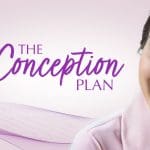My dad is an engineer and ever since I was little I remember going into his lab of wonder and seeing the generators and magnets he was developing. He was then, and still is to me, the cleverest man alive. It was this exposure at a young age that triggered in me an interest in science and how it can be used for the greater good. And for me, there’s no better example of this than the field of IVF, where science has been developed to allow millions of people around the world to have families. That is the ultimate achievement. But we’re now going further and trying to answer the all elusive question, how and when will I get pregnant?
Several models and algorithms have been developed to help predict this, as reported this weekend by @forbes and one of those attempts to identify womens’ physiological factors to predict their fertile window. I certainly think that any device which encourages women to have a greater understanding and self awareness of their natural cycle is a good thing.
There’s also been a recent attempt to devise an algorithm to predict time taken to conception depending on the presence or absence of factors that can influence fertility. Prediction models are being developed that have the ability to provide a prognosis if the couple is trying naturally or having treatment (Human Reproduction McLernon, June 2019, 1126-1138). But despite all this innovation, there isn’t an algorithm out there capable of fully deciphering human fertility.
This is because fertility is influenced by so many unseen factors that are difficult to measure, such as the mind, emotions, stress and environment. And there isn’t a single computer programme that exists capable of unravelling these mysteries. In addition, the danger we run with an algorithm used to predict the fertile window is that it can lead to the denigration of sex and its contribution to human procreation, making it feel very mechanical, where the joy and spontaneity is lost.
So, whilst welcoming new technology, we must use it responsibly and never in place of human assessment and wisdom.





